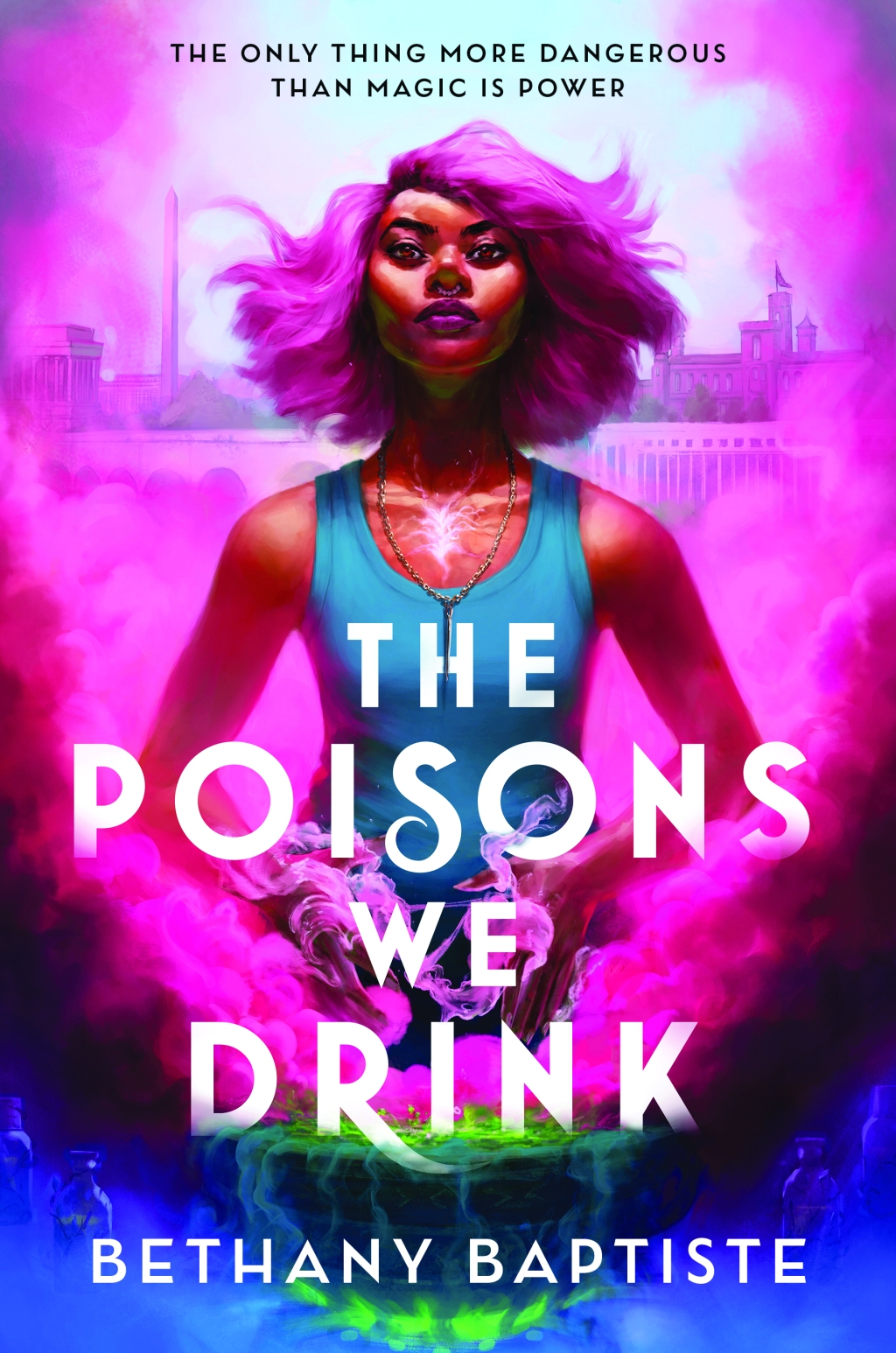Author: Bethany Baptiste
Release Date: March 5, 2024
I voluntarily read and reviewed an advanced copy of this book. All thoughts and opinions are my own.
Synopsis
In a country divided between humans and witchers, Venus Stoneheart hustles as a brewer making illegal love potions to support her family.
Love potions is a dangerous business. Brewing has painful, debilitating side effects, and getting caught means death or a prison sentence. But what Venus is most afraid of is the dark, sentient magic within her.
Then an enemy’s iron bullet kills her mother, Venus’s life implodes. Keeping her reckless little sister Janus safe is now her responsibility. When the powerful Grand Witcher, the ruthless head of her coven, offers Venus the chance to punish her mother’s killer, she has to pay a steep price for revenge. The cost? Brew poisonous potions to enslave D.C.’s most influential politicians.
As Venus crawls deeper into the corrupt underbelly of her city, the line between magic and power blurs, and it’s hard to tell who to trust…Herself included.
Review
Bethany Baptiste’s debut novel, “The Poisons We Drink,” invites readers into a world divided between humans and witchers, where love potions serve as both a dangerous commodity and a catalyst for complex moral dilemmas. Through the eyes of protagonist Venus Stoneheart, a brewer entangled in the clandestine trade of illicit potions, Baptiste explores themes of power, revenge, and the blurred boundaries between magic and morality.
The narrative kicks off with Venus navigating the treacherous underworld of potion brewing to support her family, amidst a backdrop of political intrigue and simmering tensions between factions. However, when tragedy strikes and Venus is presented with an opportunity for revenge by none other than the formidable Grand Witcher, the story catapults into a whirlwind of deception and moral ambiguity.
One of the novel’s strengths lies in its rich portrayal of diverse characters, particularly queer, non-binary, and black individuals, who add depth and authenticity to the narrative. Baptiste fearlessly tackles themes such as police brutality, PTSD, and power dynamics, grounding the story in a gritty realism that resonates with contemporary issues.
The world-building in “The Poisons We Drink” is undeniably impressive, with inventive concepts like Witcherpedia and intricate details about potion brewing adding layers of depth to the setting. However, despite its imaginative premise, the execution occasionally falters, particularly in the pacing and prose style.
While the novel is undeniably action-packed and fast-paced, it takes time for the plot to make itself known, leaving readers grappling with a sense of confusion in the early chapters. Additionally, the writing style, characterized by short, choppy sentences and repetitive phrasing, can feel clunky at times, detracting from the overall reading experience.
Furthermore, the large cast of characters, while diverse and compelling, suffers from a lack of adequate background and development, resulting in some individuals feeling irrelevant to the central narrative. This imbalance in character focus detracts from the cohesion of the story and contributes to a sense of narrative drag in certain sections.
Overall, “The Poisons We Drink” is a promising debut that showcases Bethany Baptiste’s talent for crafting intricate worlds and exploring complex themes. While the novel may stumble in its execution at times, its compelling characters and thought-provoking narrative ultimately make it a worthwhile read for fans of fantasy fiction with a gritty edge.

Leave a comment